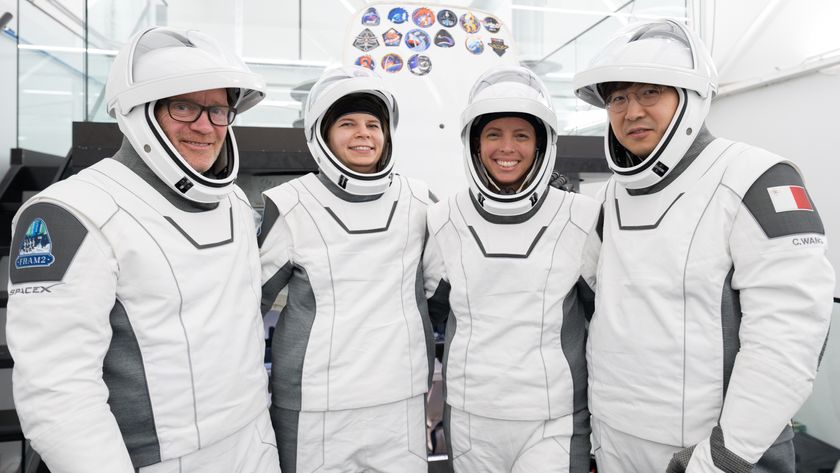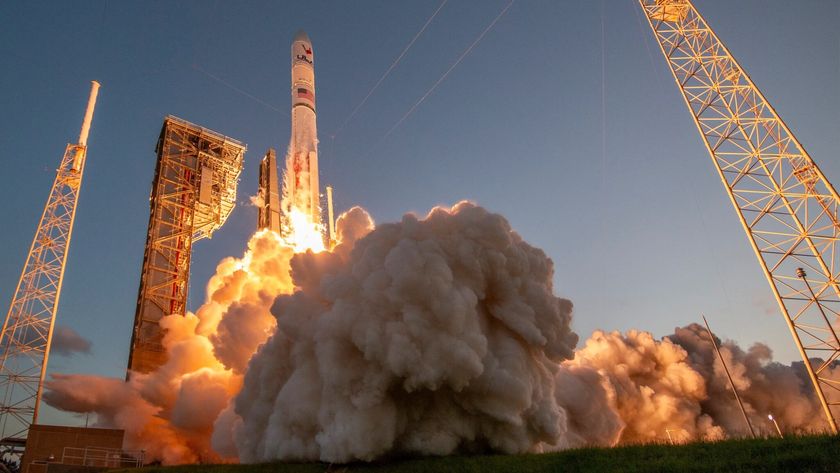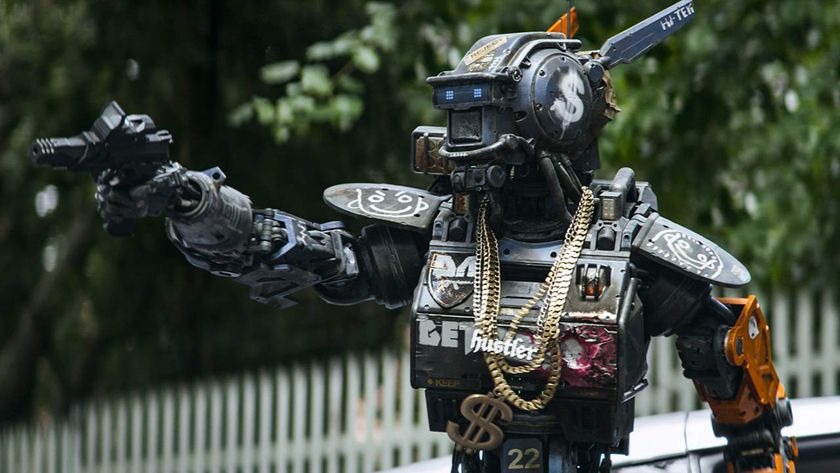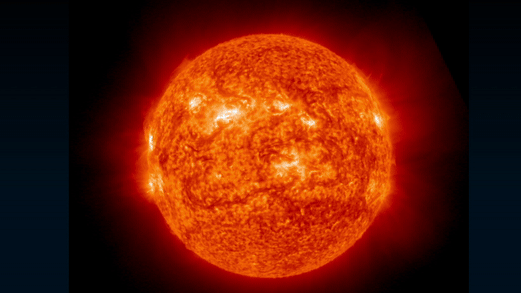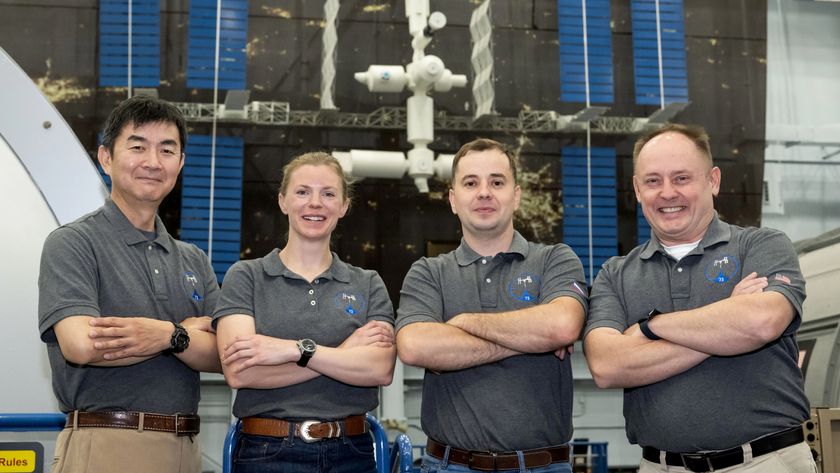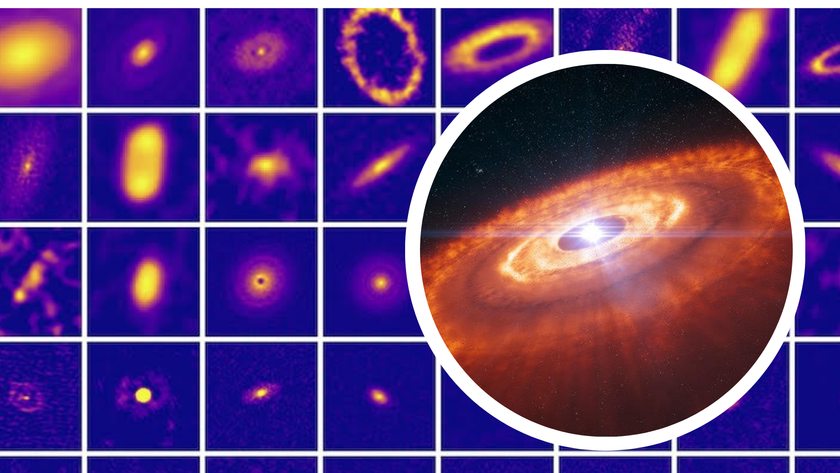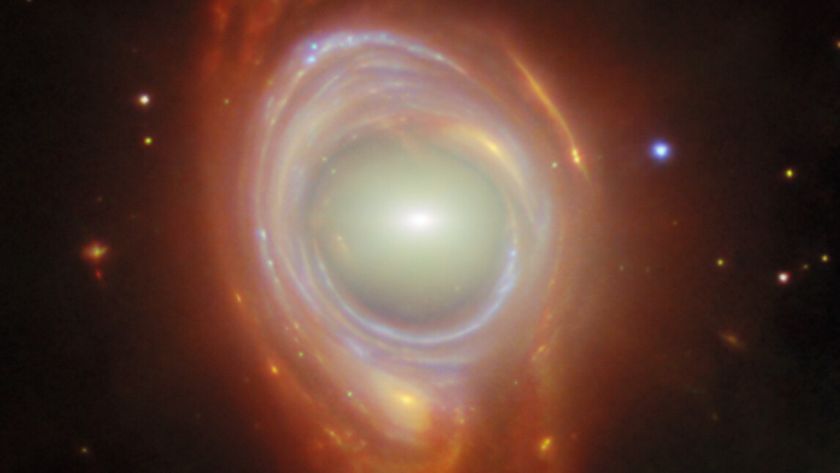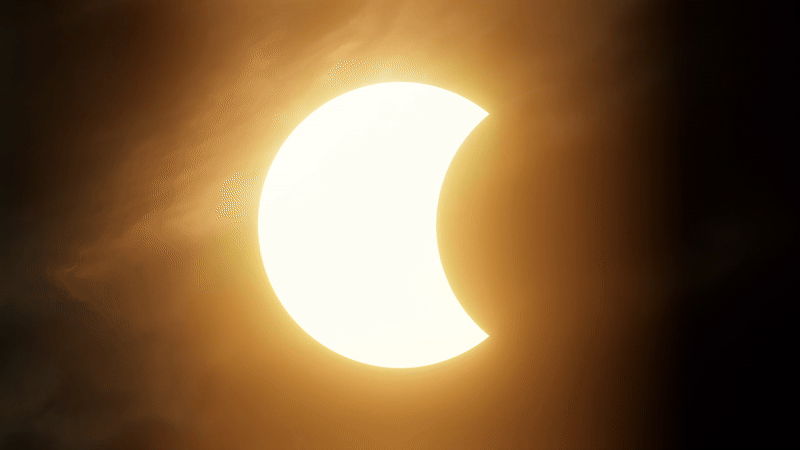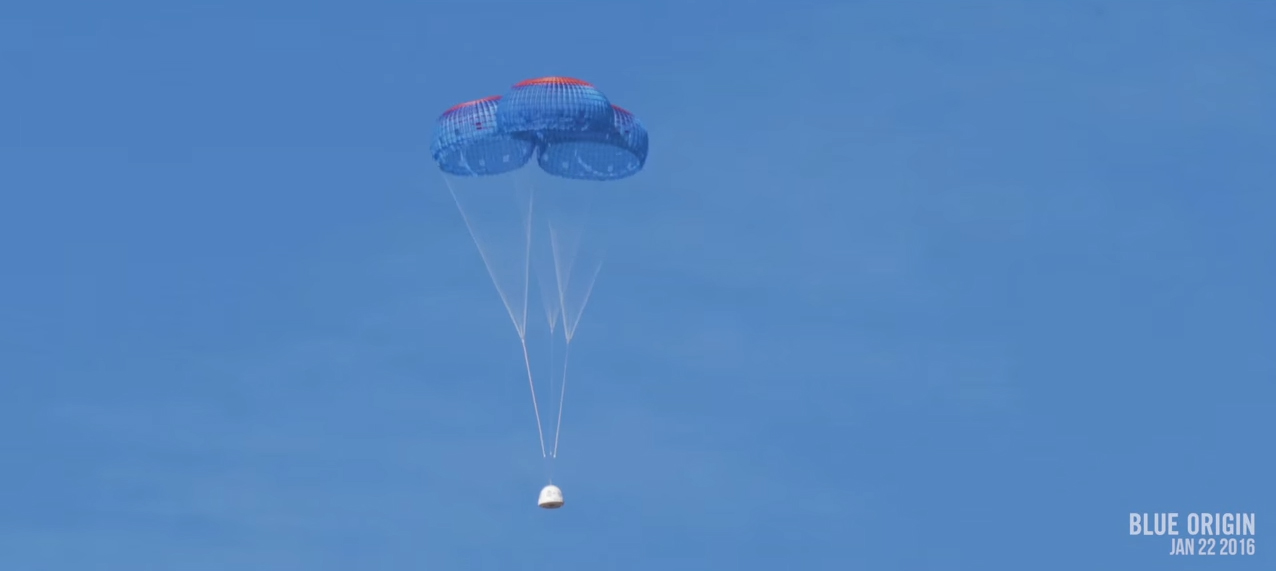
The commercial space company Blue Origin aims to launch the most ambitious test yet of its reusable spaceflight system by the end of the month, the firm's founder Jeff Bezos said.
Blue Origin has launched and landed its New Shepard rocket and associated capsule — a duo the company is developing to take passengers and payloads to suborbital space and back — three times since November 2015.
Although an exact date for the liftoff has not been set, the company expects to launch the fourth New Shepard flight sometime in June, Bezos said — and this next uncrewed mission will add a new challenge. [See photos of New Shepard's third test flight]
"We're planning to demonstrate the redundancies built into the capsule on this re-flight of the vehicle by intentionally failing one drogue and one main parachute during descent," Bezos wrote in an emailed newsletter update on June 3. "This should occur around 7 1/2 minutes into the flight, at an altitude of 24,000 feet [7,315 meters]."
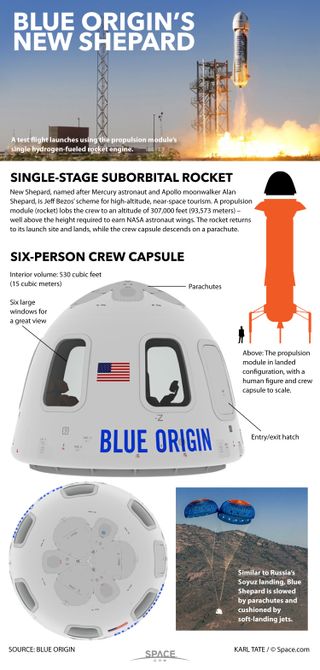
Parachute failures are realistic scenarios for crew-carrying capsules, Bezos wrote, noting that NASA's Apollo 15 moon mission overcame the issue during its return to Earth in 1971.
The six-passenger New Shepard capsule should be able to handle a chute problem as well, according to Bezos, who also founded web retailer Amazon.com.
"The crew capsule is equipped with a two-stage crushable structure that absorbs landing loads, along with seats that use a passive energy-absorbing mechanism to reduce peak loads to the occupant," he wrote. "As an added measure of redundancy, the crew capsule is equipped with a 'retro rocket' propulsive system that activates just a few feet above the ground to lower the velocity to approximately 3 ft/sec [0.9 m/sec] at touchdown. This final maneuver causes the dust cloud you can see when the crew capsule lands."
Get the Space.com Newsletter
Breaking space news, the latest updates on rocket launches, skywatching events and more!
The upcoming mission will also further test and demonstrate the reusability of the overall New Shepard system, and allow detailed data about how the rocket and capsule maneuver to be gathered. This latter information should reduce modeling uncertainties, Bezos said.
Blue Origin isn't the only company developing hardware to take paying customers to suborbital space and back. Virgin Galactic is developing a six-passenger space plane called SpaceShipTwo, for example, and XCOR Aerospace is working on a one-passenger rocket plane called Lynx.
New Shepard's November 2015 flight made history, marking the first time a rocket had launched to space and then landed vertically back on Earth. SpaceX has since pulled off the feat repeatedly, landing the first stage of its Falcon 9 rocket four times during orbital launches (which involve higher velocities and forces on the boosters).
Both Bezos and Elon Musk, the founder and CEO of SpaceX, have said that reusable rockets will slash the cost of spaceflight, helping to open the solar system to human exploration.
Follow Mike Wall on Twitter @michaeldwall and Google+. Follow us @Spacedotcom, Facebook or Google+. Originally published on Space.com.
Join our Space Forums to keep talking space on the latest missions, night sky and more! And if you have a news tip, correction or comment, let us know at: community@space.com.

Michael Wall is a Senior Space Writer with Space.com and joined the team in 2010. He primarily covers exoplanets, spaceflight and military space, but has been known to dabble in the space art beat. His book about the search for alien life, "Out There," was published on Nov. 13, 2018. Before becoming a science writer, Michael worked as a herpetologist and wildlife biologist. He has a Ph.D. in evolutionary biology from the University of Sydney, Australia, a bachelor's degree from the University of Arizona, and a graduate certificate in science writing from the University of California, Santa Cruz. To find out what his latest project is, you can follow Michael on Twitter.
